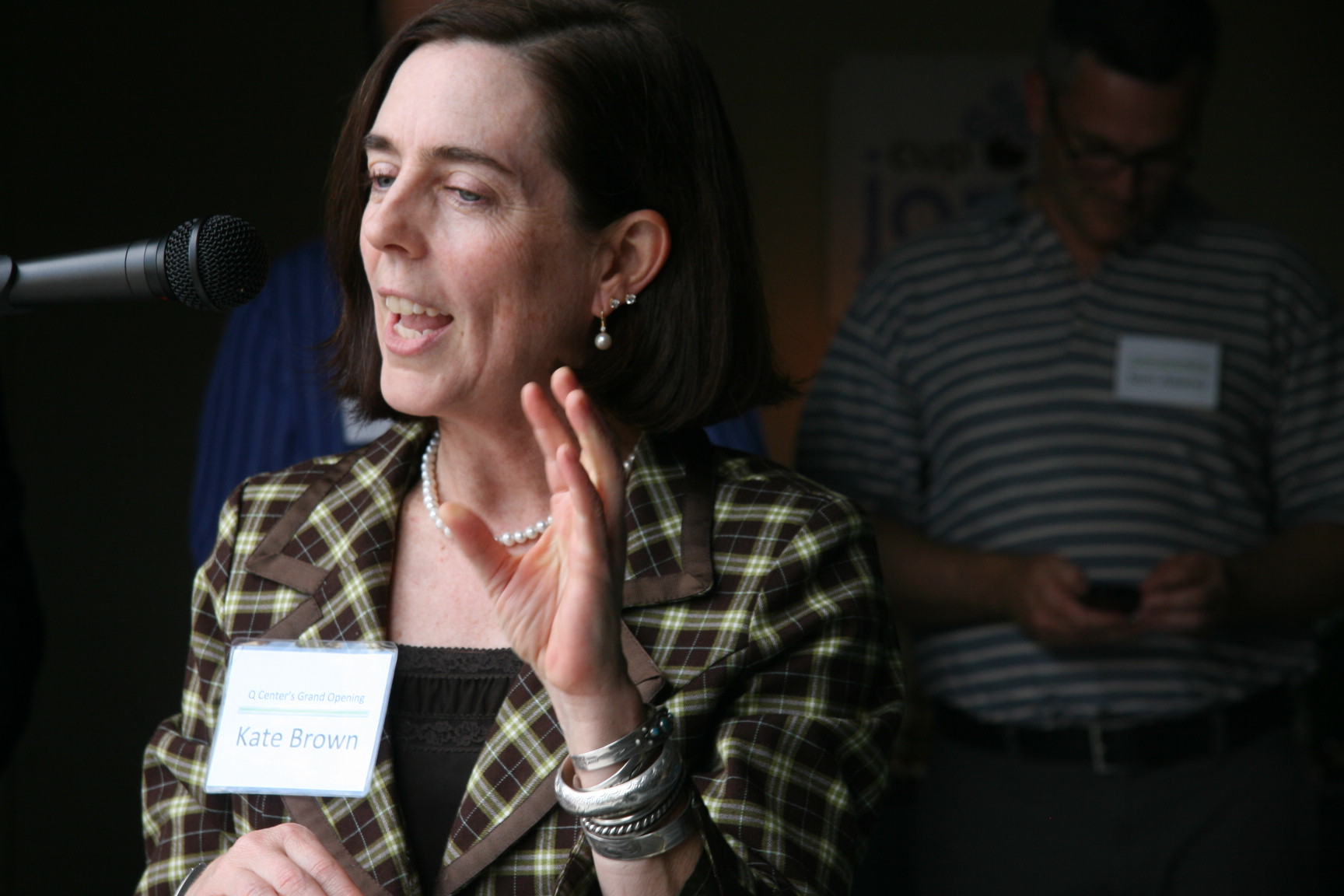
On November 8, Lewis & Clark students registered to vote in Oregon will be not only cast their vote for the next president of the United States, but also for the next governor of Oregon.
In a special election prompted by the resignation of Governor John Kitzhaber in 2015, the interim Democratic Governor Kate Brown will face off against Republican Bud Pierce, to determine who will serve the remaining two years of the term.
Brown graduated from Lewis & Clark Law School in 1985, after receiving a BA in Environmental Conservation with a certificate in Women’s Studies from the University of Colorado at Boulder, in 1981.
“I’ve always been an avid feminist,” Brown said in a phone interview. “I’m an avid environmentalist. So between the two of them, obviously clear choice – Democratic party.”
Yet before Brown moved out of her parents’ home in Minnesota, the choice didn’t seem so clear.
“I grew up literally a Republican,” Brown said. “My parents were avid Republicans. My mom volunteered for a Republican legislature. And when I left home, it was like, what am I doing? I’m clearly a Democrat.”
So in 1982, Brown turned to law school.
“I went to law school because I wanted the tools to achieve justice and equality in this world,” Brown said. “I felt like going to Lewis & Clark gave me the tools… It definitely had a huge impact on my life, and it still does. My close network of friends are all Lewis & Clark Law grads.”
It was through that close network of friends that Brown initially found her way to politics. After practicing law for a couple years, a good friend called her to ask if she would be interested lobbying for domestic violence and women’s health issues. During her session at the Oregon legislature advocating on behalf of women, she got a bill signed into law that enables parents to stay home with their sick children without the fear of losing their jobs.
“For me [that bill] was a realization that I could make a difference,” Brown said.
After serving in the Oregon Legislative Assembly, Brown was elected to be the Secretary of State for Oregon in 2008. Oregon law dictates that if the governor is to abdicate his seat during a session, the Secretary of State is to assume the position of governor. When Governor Kitzhaber resigned mid-term, it fell to Brown to step in.
“It was certainly a challenge stepping in after Governor Kitzhaber resigned, but my focus has been to restore Oregonians’ faith in state government by increasing transparency and accountability in state government,” Brown said.
Brown is now running for election in the November 8 election. If she is to win, it will be the first time she has been elected to the gubernatorial office. But for Brown, beating a Republican candidate would not change her bi-partisan governing efforts.
“It’s all about relationships. A number of Republican legislators have told me that they were never in the governor’s office before, and some of them now have been in my office multiple times,” Brown said.
“Last session, it was a short session, we only had one bill that passed that I signed into law that did not have bipartisan support.”
This emphasis on personal relationships and getting stuff done, or GSD as Brown calls it, took time for Brown to understand.
“I think I was very idealistic when I started, and I’m now, people would tell you I’m very pragmatic. I’m a pragmatic progressive,” she said.
So what sets Brown apart from Republican candidate Bud Pierce?
“One of the biggest distinctions between myself and my opponent is that I have a plan to tackle global climate change in Oregon,” Brown said. “I see global climate change as the most challenging issue that we face, not only here in Oregon, but across the entire globe. Oregon is not a huge part of the global issue, but we can be a national leader, and under my strong leadership we will continue to be.”
When asked about the current presidential election, Brown let out a sigh.
“This is probably one of the most difficult presidential elections that I recall in my 56 years. I am hoping that Trump’s horrible comments about women, very racist comments about other groups, how he has treated gold-star families, I am hoping that [voters] let Donald Trump know how unacceptable this language and this behavior is.”
As far as advice for college students? Vote!
“I believe that your vote is your voice, and that your voice should be heard,” Brown said. “It’s really important that young people get engaged early on, and Oregon is such a great place to do it. Your voice can really matter here.”
Yet Brown also stresses that political engagement isn’t all that college students should focus on.
“Don’t forget to play a little,” Brown said. She paused. “Be yourself.”
Subscribe to the Mossy Log Newsletter
Stay up to date with the goings-on at Lewis & Clark! Get the top stories or your favorite section delivered to your inbox whenever we release a new issue.

Leave a Reply